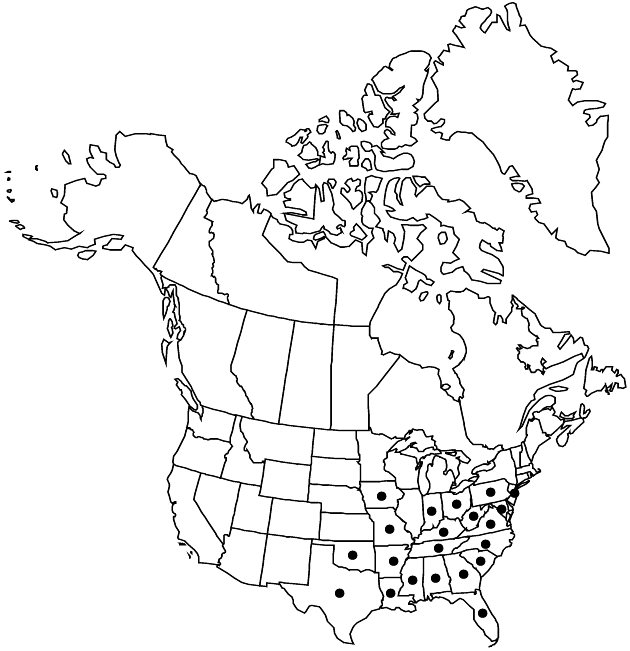Helianthus angustifolius
Sp. Pl. 2: 906. 1753.
Perennials, 50–150+ cm (with crown buds, rhizomes absent or poorly developed). Stems erect, usually ± hairy. Leaves mostly cauline; opposite or alternate; sessile or subsessile; blades (3-nerved near bases) narrowly lanceolate to linear, 8–15 × 0.15–0.5(–1) cm, bases cuneate, margins entire (revolute, abaxial face sometimes obscured by rolled margins), abaxial faces strigose to hispid or hirsute, sometimes (adaxial not) gland-dotted. Heads 3–16. Peduncles 5–15 cm. Involucres shallowly hemispheric, 10–20 mm diam. Phyllaries 25–32 (loose), lanceolate, 4–9 × 1–2 mm, apices acute to slightly acuminate, abaxial faces usually scabrous, rarely glabrous, usually gland-dotted. Paleae (oblanceolate) 5.5–6.5 mm, entire or ± 3-toothed (apices purplish, mucronate, gland-dotted). Ray florets 10–20; laminae 10–20 mm (abaxial faces gland-dotted). Disc florets 75+; corollas 4–4.5 mm, lobes yellow; anthers dark brown or black, appendages dark (style branches usually yellow). Cypselae 2–3 mm, glabrate; pappi of 2 aristate scales 1.5–2.1 mm. 2n = 34.
Phenology: Flowering late summer–fall.
Habitat: Open to shaded, usually moist places
Elevation: 10–700 m
Distribution

Ala., Ark., Fla., Ga., Ind., Iowa, Ky., La., Md., Miss., Mo., N.J., N.C., Ohio, Okla., Pa., S.C., Tenn., Tex., Va., W.Va.
Discussion
The distal parts of Helianthus angustifolius are identical in appearance to those of H. simulans; plants of the latter are taller (200+ cm) and more robust. The leaves are not only narrower in H. angustifolius but also tend to be more strongly revolute (abaxial faces sometimes scarcely visible).
Selected References
None.